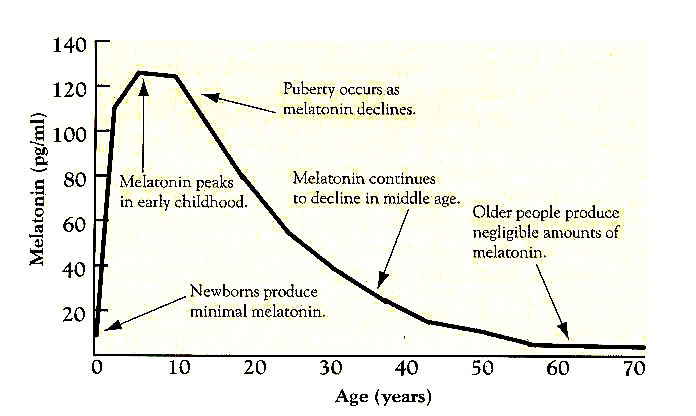The concern presented by others is if supplementing with melatonin will reduce the amount of melatonin your body normally makes. If it did, supplementing would not be the good idea it seems after all.
That's one angle and I cannot find any published evidence that supports the above.
Another possibility that has been put forward is that supplementation with melatonin may lead to a downregulation/desensitization of melatonin receptors over time thus reducing the effects of both endogenous and exogenous melatonin.
The only thing that I have found that may support this argument is
FASEB J. 2004 Nov;18(14):1646-56.
Melatonin desensitizes endogenous MT2 melatonin receptors in the rat suprachiasmatic nucleus: relevance for defining the periods of sensitivity of the mammalian circadian clock to melatonin.
* Gerdin MJ,
* Masana MI,
* Rivera-Bermudez MA,
* Hudson RL,
* Earnest DJ,
* Gillette MU,
* Dubocovich ML.
Department of Molecular Pharmacology and Biological Chemistry, Northwestern University Feinberg School of Medicine, Chicago, IL 60611-3008, USA.
The hormone melatonin phase shifts circadian rhythms generated by the mammalian biological clock, the suprachiasmatic nucleus (SCN) of the hypothalamus, through activation of G protein-coupled MT2 melatonin receptors. This study demonstrated that pretreatment with physiological concentrations of melatonin (30-300 pM or 7-70 pg/mL) decreased the number of hMT2 melatonin receptors heterologously expressed in mammalian cells in a time and concentration-dependent manner. Furthermore, hMT2-GFP melatonin receptors heterologously expressed in immortalized SCN2.2 cells or in non-neuronal mammalian cells were internalized upon pretreatment with both physiological (300 pM or 70 pg/mL) and supraphysiological (10 nM or 2.3 ng/mL) concentrations of melatonin. The decrease in MT2 melatonin receptor number induced by melatonin (300 pM for 1 h) was reversible and reached almost full recovery after 8 h; however, after treatment with 10 nM melatonin full recovery was not attained even after 24 h. This recovery process was partially protein synthesis dependent. Furthermore, exposure to physiological concentrations of melatonin (300 pM) for a time mimicking the nocturnal surge (8 h) desensitized functional responses mediated through melatonin activation of endogenous MT2 receptors, i.e., stimulation of protein kinase C (PKC) in immortalized SCN2.2 cells and phase shifts of circadian rhythms of neuronal firing in the rat SCN brain slice. We conclude that in vivo the nightly secretion of melatonin desensitizes endogenous MT2 melatonin receptors in the mammalian SCN thereby providing a temporally integrated profile of sensitivity of the mammalian biological clock to a melatonin signal.
PMID: 15522910 [PubMed - indexed for MEDLINE]
Note that they refer to in vivo endogenous i.e. your own, nightly secretion of melatonin desensitizing MT2 melatonin receptors and not melatonin supplementation
For me the evidence regarding the benefits of melatonin as an potent anti-aging/anti-carcinogenic supplement far outweighs what seems to be only a suggested risk of desenstizing your own sleep-wake cycles.
I'm 35 years old and take 5mg each night.




















































